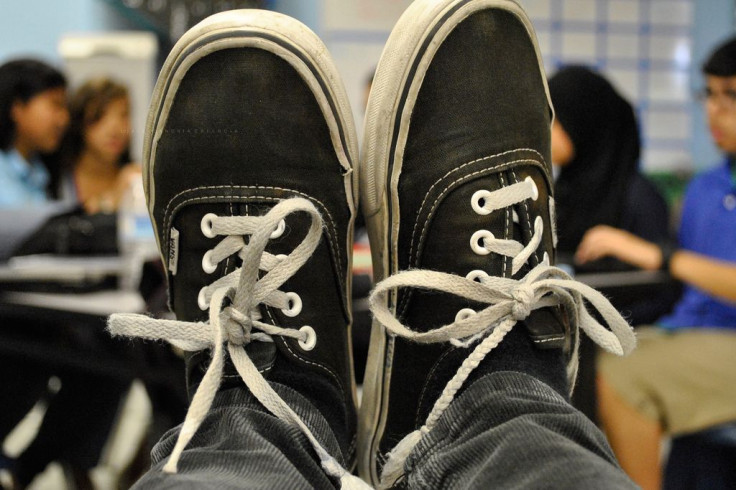Desperately Need a Favor? How Asking Someone First to Tie Your Shoes Significantly Improves Your Chances

Need a favor from someone? Psychologists say that you start by asking the person if he or she can tie your shoes.
Scientists say that one of the best ways to convince someone to give in is to start with an outrageous demand first because when a person encounters and turns down a strange request, they are much more likely to agree to the next thing you ask for.
This more cunning technique known as the "door-in-the-face" technique is a more effective version of the classic "foot-in-the door" approach, according to researchers.
In a series of experiments, study author Dariusz Dolinski of the Warsaw School of Social Sciences and Humanities in Poland, found that when the "initial request is exceptional or odd, then even if it is easy and is fulfilled by nearly everyone it will still enhance people's inclination to fulfill the subsequent, much more complicated request," according to the findings published in the journal Applied Psychology.
For example, while a street beggar might ask for the time and then follow up with a request for spare change, Dolinski suggests that the panhandler might have more luck if he or she made the first question more bizarre or extreme.
However, in an office context, a boss could ask an employee to work weekends and holidays for a whole year, and when that gets turned down, the manager should get better results with the follow up by asking if a report could be turned in by Friday.
Researchers said that the first usual question effectively reframes the real request and makes it sound a lot more reasonable.
The technique works because the weird question throws people off their usual refusal script.
Researchers explained that instead of instinctively saying no, we will wonder why we're being asked to do something so out of the ordinary and wonder whether we should have been so quick to refuse, and when the next question comes along, we'll still be off balance and much more open to complying.
To test out the theory, Dolinski had an experimenter stop people who were walking into a supermarket and say to them: "Excuse me, but I suffer from terrible back pain and I cannot bend down. My shoelaces are undone. Could you please be so kind as to tie them for me?"
Other people were stopped and asked to fill out a routine marketing survey.
Afterwards, the same people were approached again and asked by a female experimental about whether they would "keep an eye" out for her shopping cart full of groceries. She would explain that her husband had her car keys and it was hard to push the cart around while looking for him because it had a broken wheel.
Dolinski found that people were significantly more likely to care for the woman's shopping cart when they had been previously asked to tie someone's shoes compared to people who had been asked to fill out a marketing survey.
Published by Medicaldaily.com



























